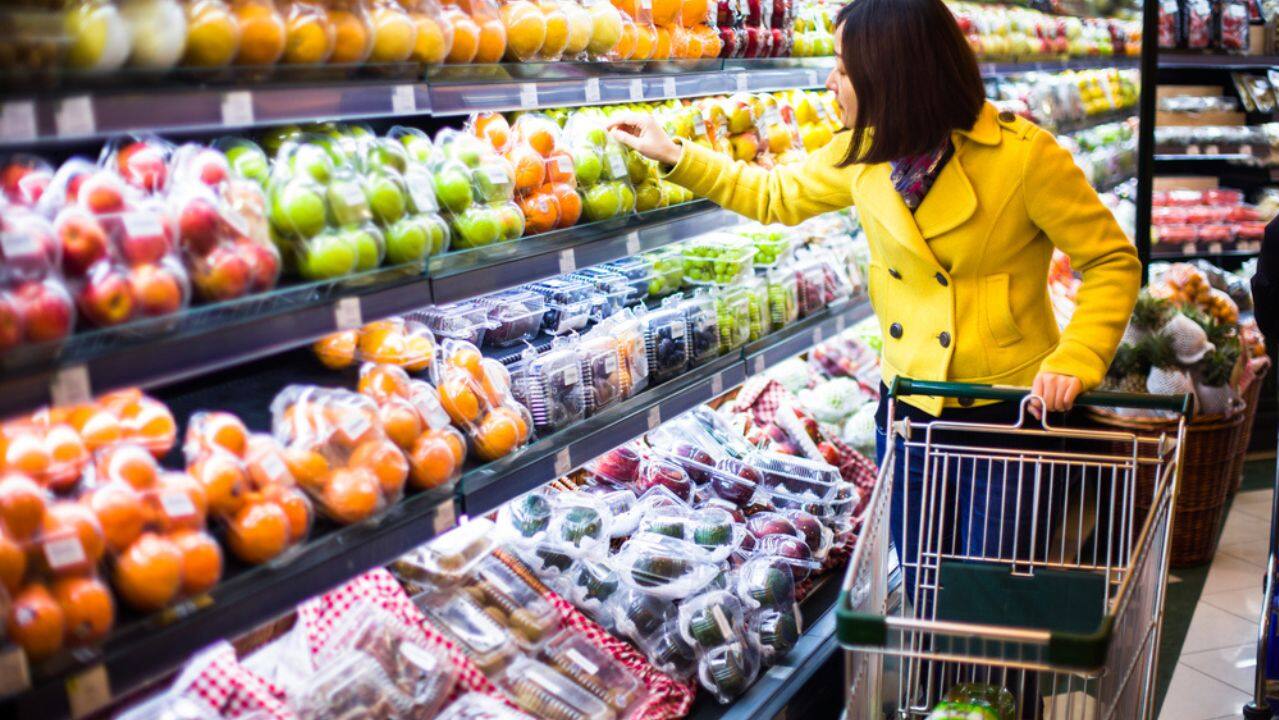Ottawa should consider windfall taxes on grocery profits if they prove excessive: report

If Canada’s Competition Bureau finds that supermarket giants are profiting excessively from food inflation, the federal government should consider imposing a windfall tax on those excess profits.
That is one of the main recommendations in a new report released this week by a parliamentary committee that has investigated the causes and possible solutions for skyrocketing food prices.
The House of Commons standing committee on agriculture and agri-food has been investigating the issue since last year, when rising inflation pushed food prices to their highest level in 40 years.
The the completed report outlines 13 recommendations by MPs from all parties in committee on how to address inefficiencies in the system – and ideally lower prices. And while the government isn’t required to implement the findings, they’re interesting nonetheless.
While the report makes numerous recommendations, including on issues such as food waste, labeling rules, measures to address food insecurity in remote areas, changes to the pricing system, improvements to supply chains and the removal of red tape around hiring workers, it is the potential of a one-off tax on record profits at supermarket chains that has attracted the most attention.
If the Competition Bureau finds evidence in its forthcoming market study that major supermarket chains are generating extra profits on food products, the government of Canada should consider introducing a windfall tax for large, price-fixing companies to prevent excessive increases in their profit margins. for these items,” the committee’s report said.
Concerns about profiteering by major supermarket chains became acute this year, so much so that the heads of Canada’s three largest domestic food companies were called to testify before the commission in March to respond to allegations.
At a committee hearing in Ottawa this week, the heads of Loblaw, Metro and Empire Foods faced tough questions from lawmakers about why food prices continue to rise. All three vigorously oppose accusations that they profit from high inflation.
“No matter how many times you read it on Twitter, the idea that grocers are driving food inflation is not only false, it’s impossible,” said Galen Weston, president of Loblaw Companies Ltd. last year.
“Our store prices have not increased faster than our costs,” he told the committee.
The grocers claim that after covering their expenses they make as much money selling food as ever, but the committee heard otherwise.
DT Cochrane, an economist with Canadians for Tax Fairness, said profit margins in the food industry during the COVID-19 pandemic, which began in early 2020, nearly doubled from levels they’ve been at for most of the past 20 years. found.
“Companies not only pass on higher costs”, he told the committee. “[They] have a lot of pricing power [and] it is not surprising that they are taking advantage of it, to the detriment of the Canadians.”
Food prices rose 9.1 percent in April from a year earlier, more than twice the official inflation rate of 4.4 percent. At one point last year, Canadian grocery bills were rising 13 percent a year.
The Competition Bureau’s probe is limited
The Competition Bureau announced last year that it would launch an investigation into the issue of excessive profits in the food sector.
But the scope of the watchdog’s investigation isn’t broad enough to encompass relationships between supermarket chains and their suppliers, limiting its usefulness — and the likelihood of something untoward going on.
Canada’s consumer watchdog says it will investigate competition in the food industry and whether having more competitors in the retail sector could curb price increases. But some industry experts say the problem runs deeper than how many supermarket chains there are.
Mike von Massow, a food economist and associate professor at the University of Guelph in Guelph, Ontario, said he appreciated some of the report’s recommendations, such as discouraging food waste and addressing critical food insecurity issues in remote communities. But he said he had some concerns about levying unexpected taxes on supermarket chains.
“Despite theatrics at the hearings, there was no definitive evidence of any significant ‘greed,'” he said in an interview with CBC News on Thursday. If the agency finds evidence of it, it’s open to the idea of using taxation to discourage it, but it’s not as easy as it sounds.
“We often see in new policy initiatives that there are loopholes or it causes something that was unintended,” von Massow said. “It should be done very, very carefully.”
The Retail Council of Canada, which represents major supermarket chains, said it welcomed the report’s recommendations. “The report makes it clear that multiple factors have led to this inflationary environment, most of them global in nature, driving up import costs in the supply chain long before these foods reach Canadian grocers,” the council said in a statement.
“The combined role of cost spikes for feed, fuel and fertilizer, exacerbated by supply chain disruptions, labor shortages and climate events, have been the real drivers of food price inflation,” it said.
“While we welcome the collaborative tone of the report, we would caution against increased government involvement in the operational aspects of the food retail industry.”



